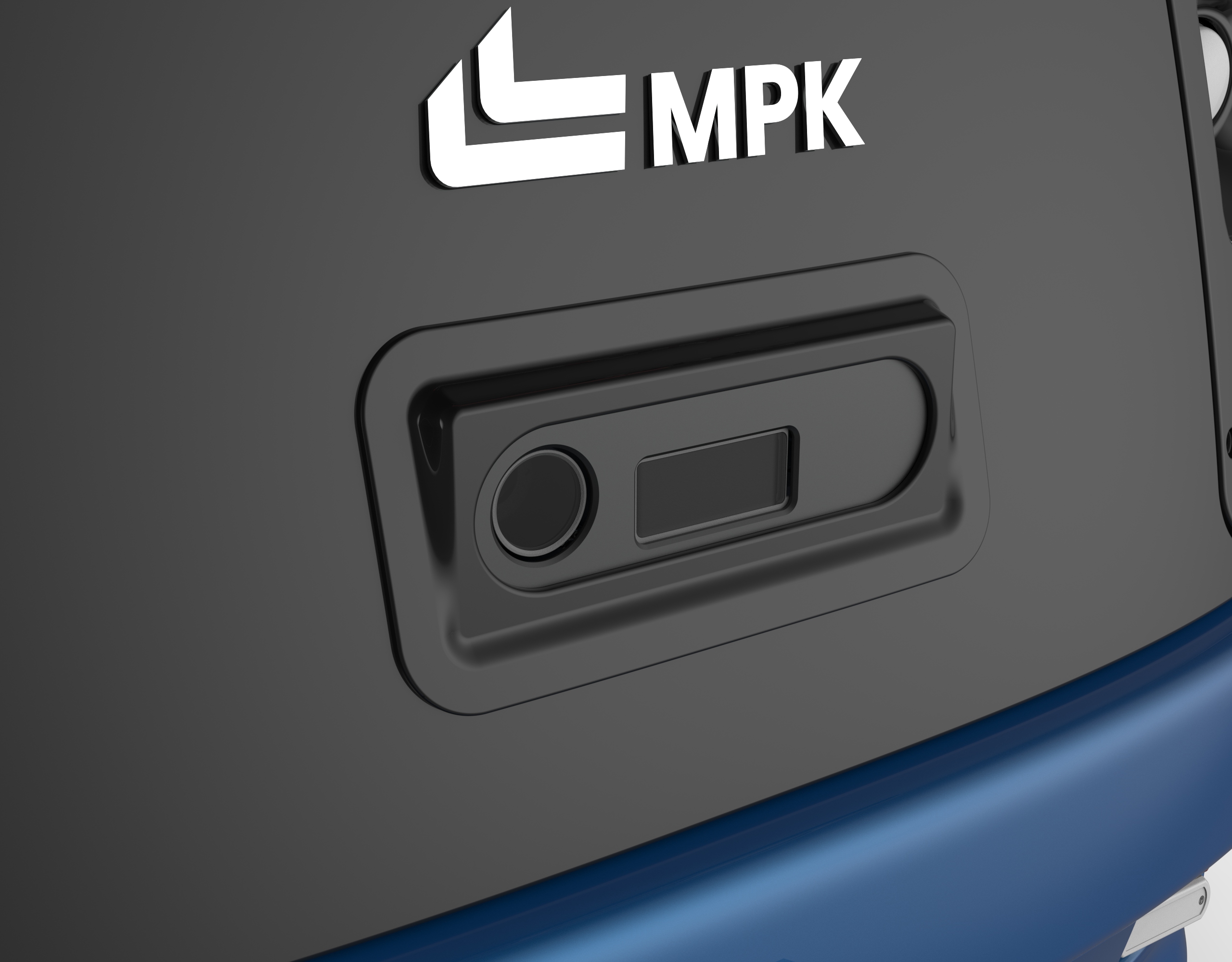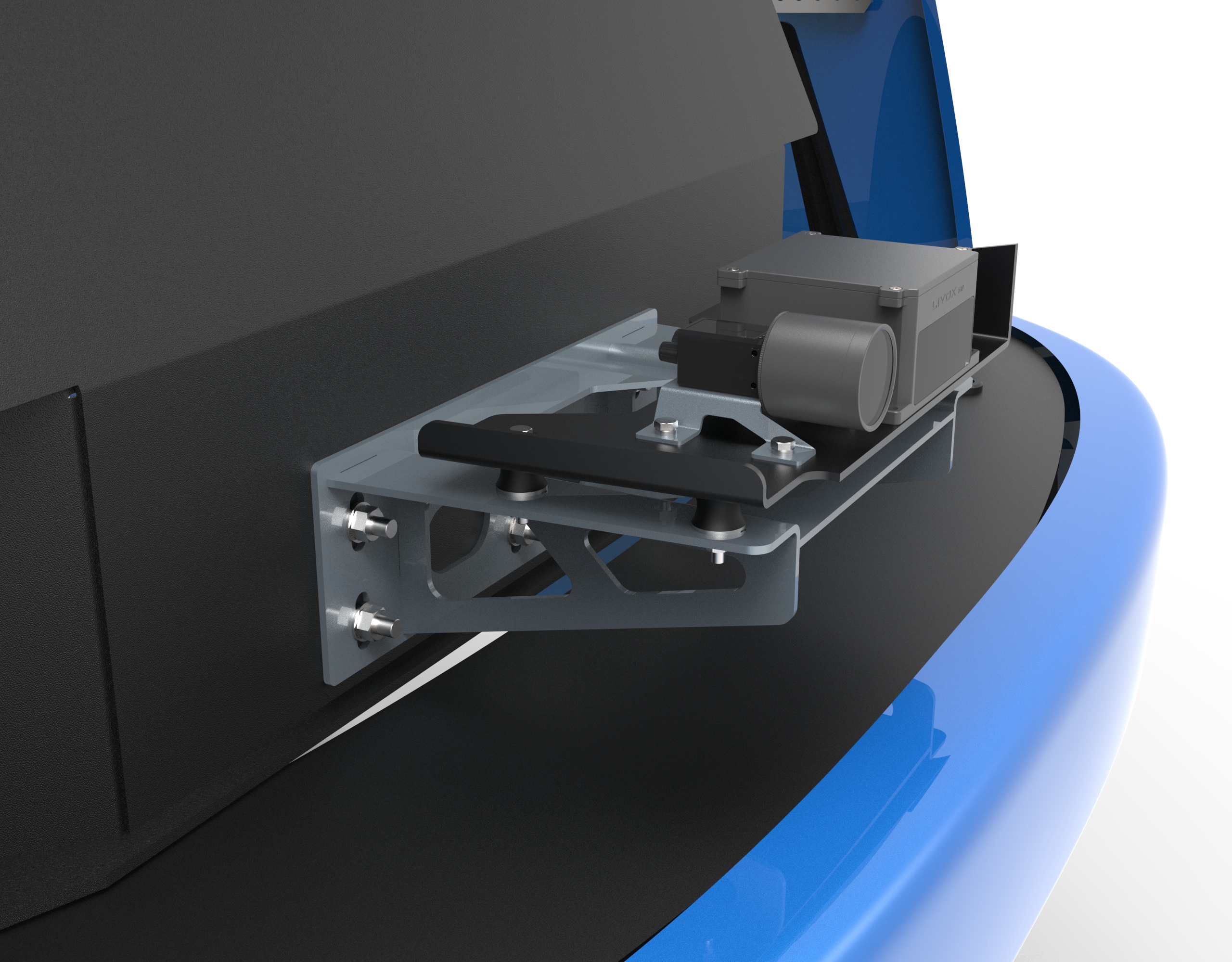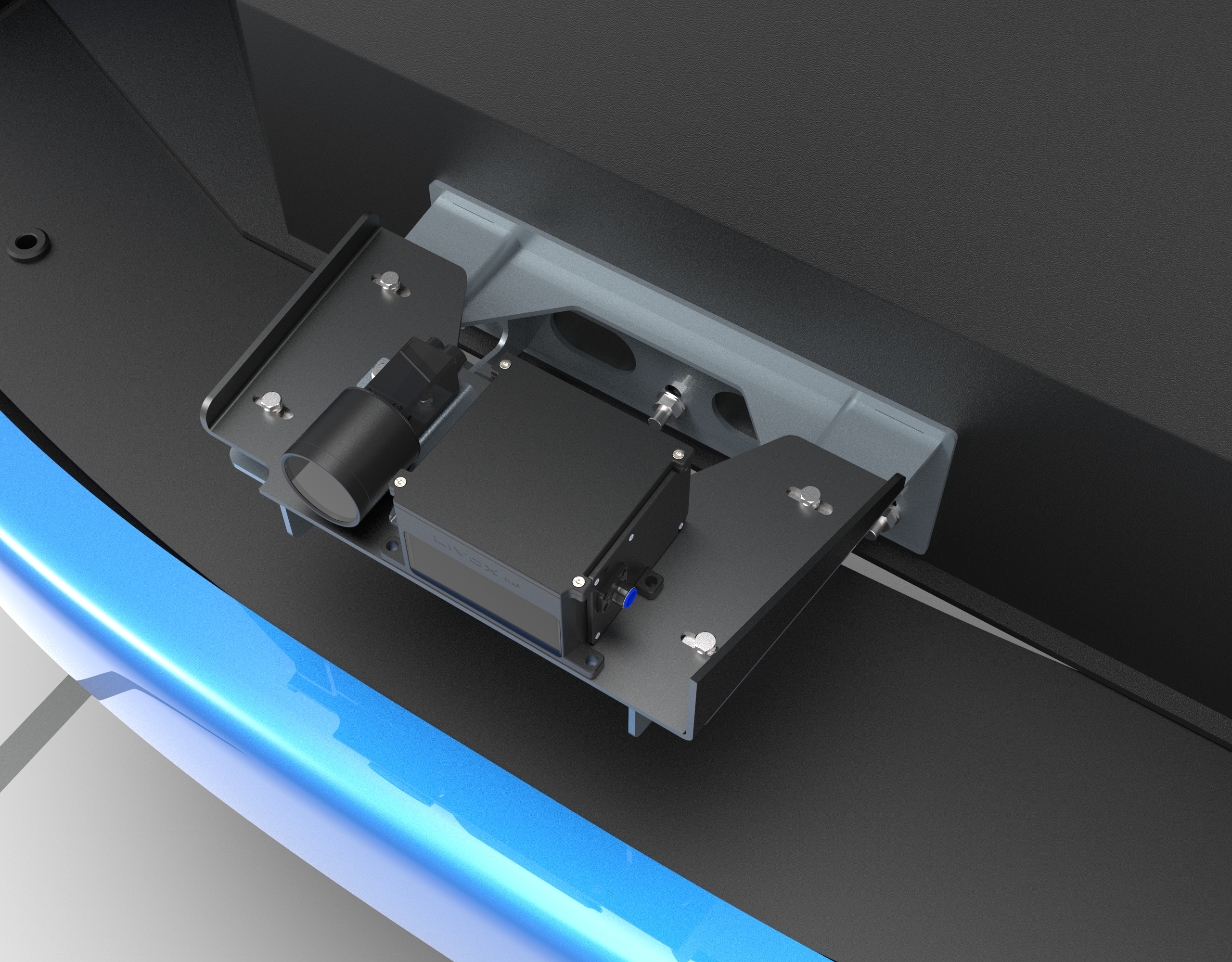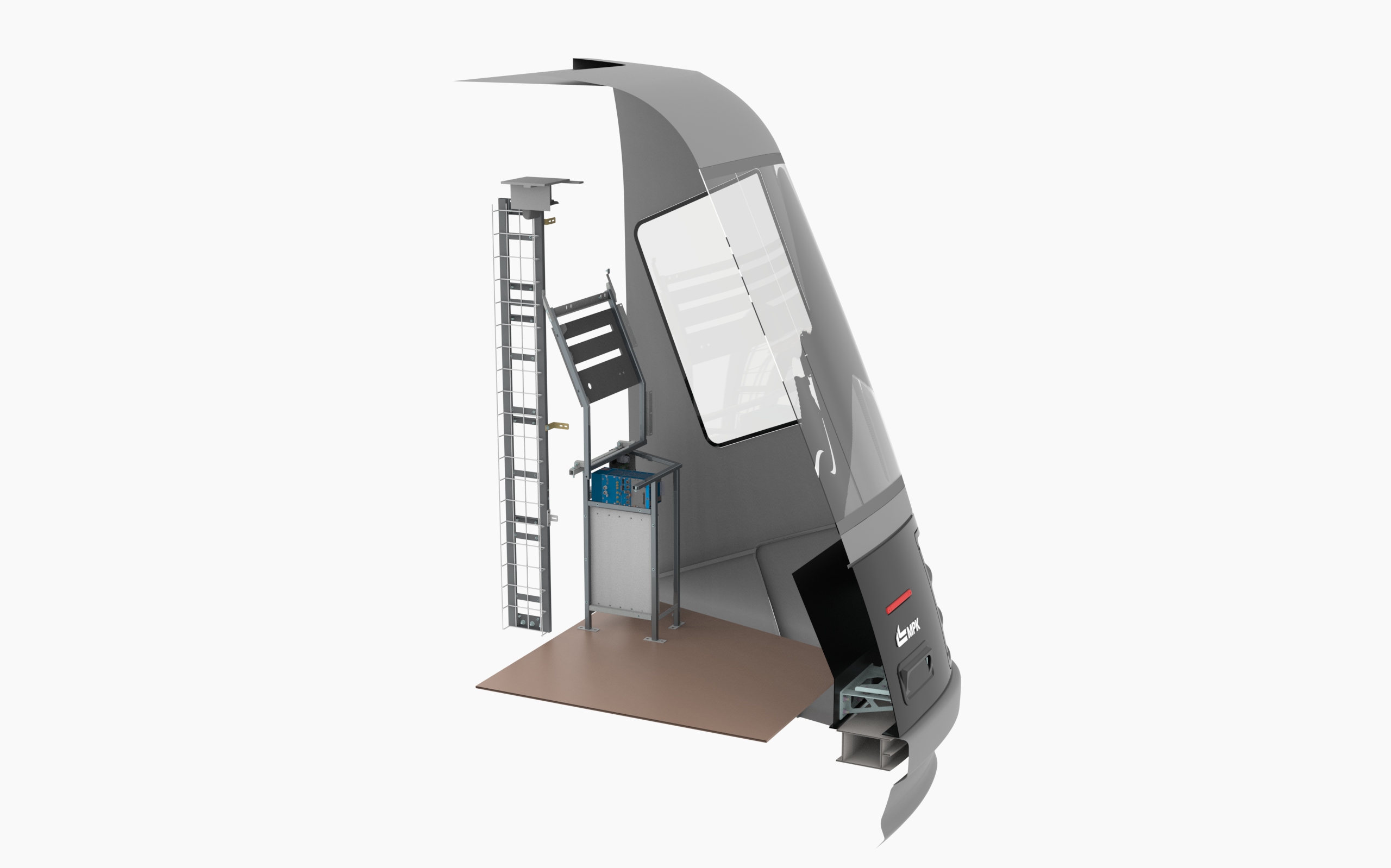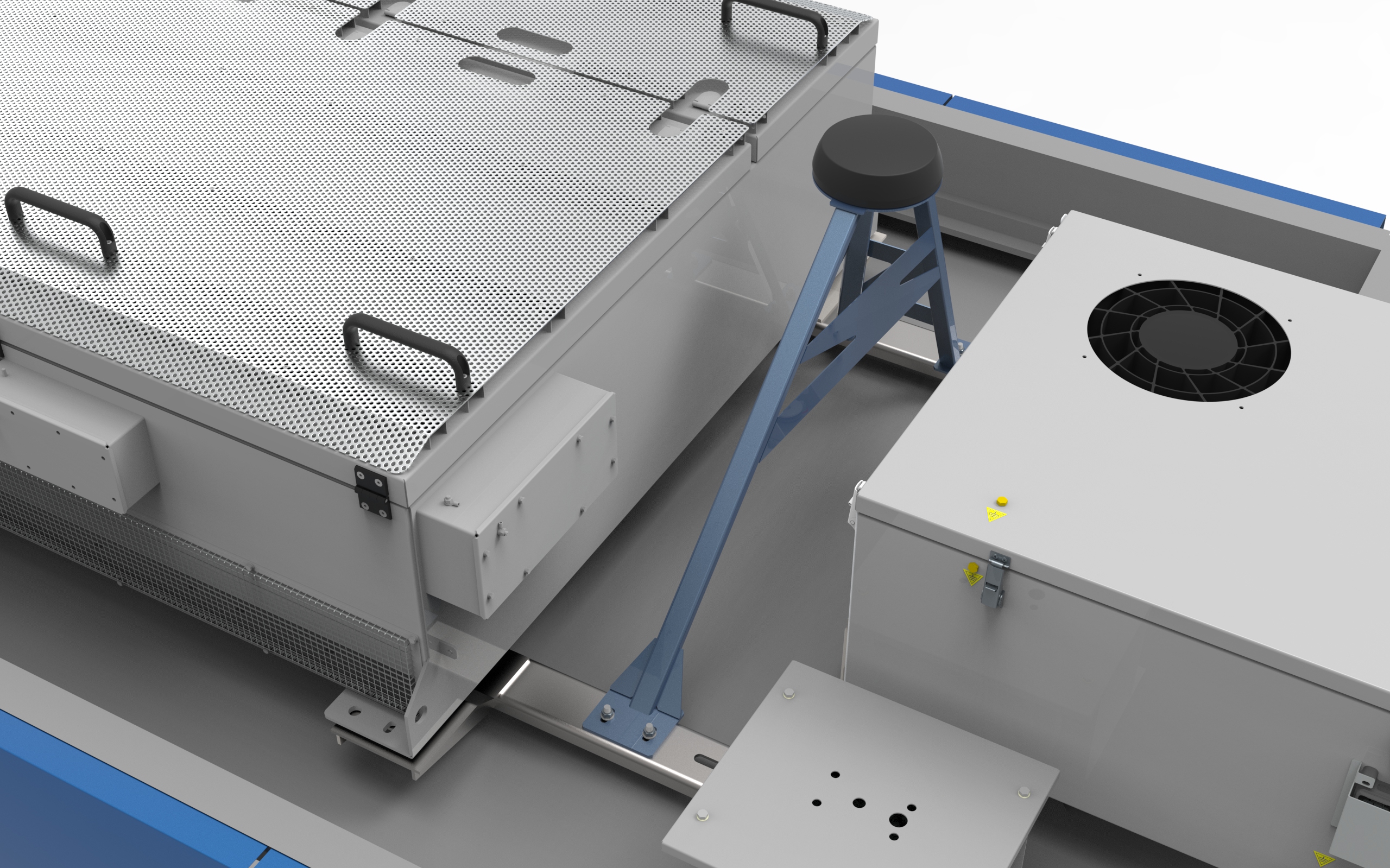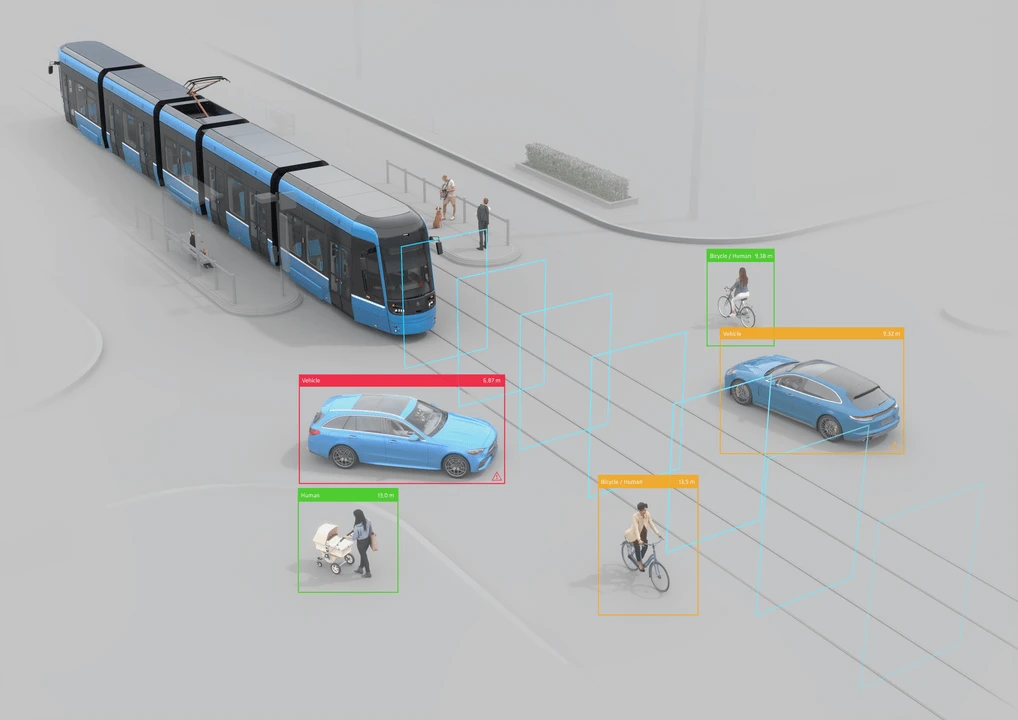“Wroclaw’s project demonstrates that our technology can be applied across the full spectrum of transport solutions. The anti-collision system is a key step on the road to transport incorporating elements of autonomous operation, and Wroclaw will now join the ranks of cities using cutting-edge technology to increase tram safety,” said Jan Hušák, Technical Director Digital at Škoda Group.
“For every urban transport operator, the safety of passengers and pedestrians is a key priority. That is why we see investing in new assistance technologies in our vehicles as a natural step. We are pleased that by equipping the Škoda 19T trams with the ACS collision avoidance system, MPK Wrocław is setting a direction for the development of this technology in Poland. We believe that this solution will significantly improve travel comfort and safety, as well as support drivers in their daily work,” stated Witold Woźny, CEO of MPK Wrocław.
“Saatz is a company that specializes in major repairs and modernization of trams, so we have extensive knowledge about various tram components, including collision avoidance systems. We believe that the ACS developed by Skoda Digital is a very good and efficient system, and we are therefore pleased that MPK Wroclaw chose this system for installation on the Skoda 19T trams we are currently modernizing. The system installation details, which we agreed with Skoda Digital engineers and for which we are responsible, will ensure proper system operation. We are pleased that, thanks to the decision of the MPK Wroclaw, the Škoda 19T trams we modernized will be collision-free, thus retaining the characteristics of renewed trams for much longer,” commented Jarosław Lazurko, CEO of SAATZ.
Škoda Group’s anti-collision system combines LiDAR technology, cameras and advanced localisation through HD maps and odometry. It creates a “virtual tunnel” in front of the tram and detects both static and dynamic obstacles in real time. LiDAR scans the surroundings up to 100 metres ahead, the IMU unit ensures precise alignment with the track profile, and the ADAS camera provides a detailed 2D image. The driver is alerted in good time, and if necessary, the system automatically activates emergency braking.
Škoda’s award-winning anti-collision system, recognized for its technical innovation, is already successfully operating on trams in Tampere (Finland) and Olomouc (Czech Republic). It will also be installed on new trams for Prague (Czech Republic), Bergamo (Italy), and the German operator rnv. A key advantage of the system is that it does not require new vehicles – it can be retrofitted to existing fleets and upgraded as needed.
The system is also one of the flagship products within Škoda Group’s broader digital ecosystem, which includes the comprehensive digitalisation of transport companies, such as the automation of depot operations, representing another step towards safer and more efficient public transport.
Škoda trams as mobile data hubs
Digitalisation of rail transport does not stop at anti-collision systems. Trams are evolving into mobile data hubs that monitor their technical condition, energy consumption, location, and passenger load, transmitting this information in real time to central systems. Predictive maintenance based on operational data helps prevent failures, reduce downtime, and optimise fleet utilisation. Škoda Group’s vision thus brings together hardware and advanced software, harnessing data and artificial intelligence to enhance the safety, reliability and efficiency of urban transport, while also helping cities better plan their future development.




